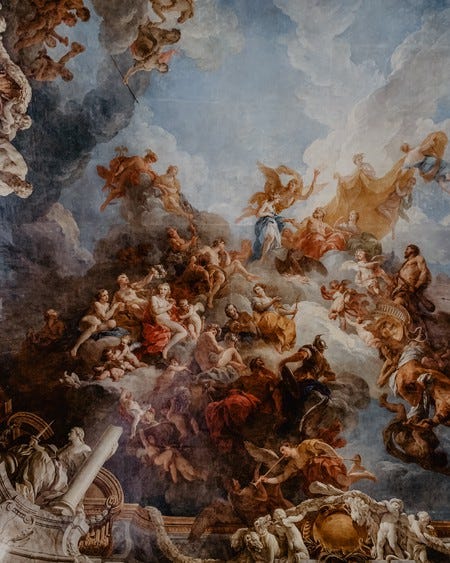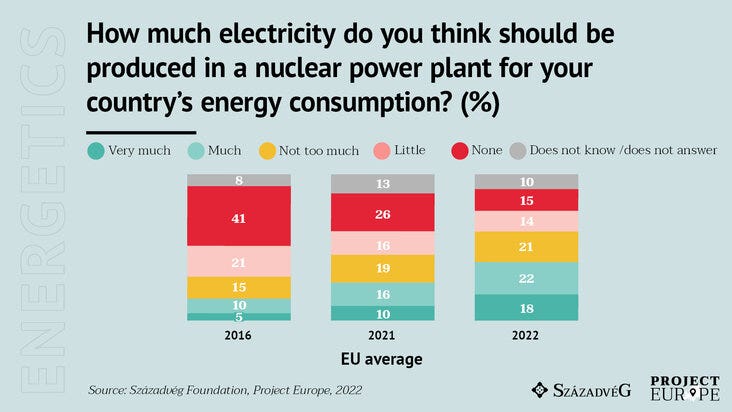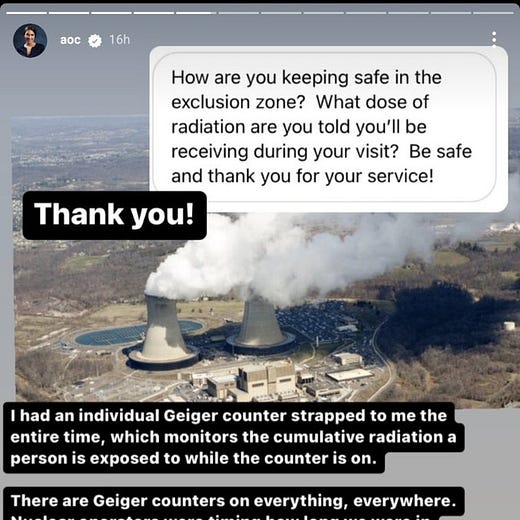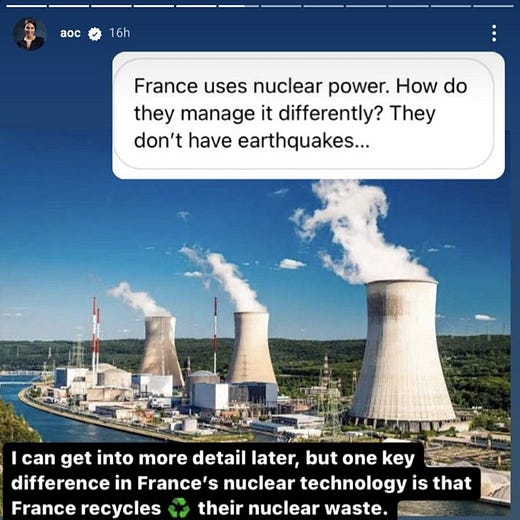🔋Nuclear Renaissance
Public and political sentiment toward nuclear power is shifting in front of our eyes and is poised to play a key role in a cleaner energy future.
If you found this article interesting, click the like button for me! I would greatly appreciate it :)
The renaissance; a cultural movement that shaped things like art and technology which was rooted in the social changes that occurred. The post-pandemic (bubonic plague) world was filled with beautiful works of art still admired today, a heightened sense of spirituality, and a long list of noteworthy literature. It also was filled with breakthroughs in medicine, navigation, astronomy, and the “birth” of modern science.
Is the nuclear energy industry poised for a period of social change leading to its prosperity? From a deeply rooted skepticism due to past nuclear disasters and political influence, public sentiment toward nuclear energy has been shifting in recent years to optimism not seen since before I was born.
Interestingly enough we are in our own post-pandemic world. While we have not yet seen many of the other positive social changes, at least not yet, one of the small little changes is nuclear sentiment. For Europe in particular, over the last 6 years the amount of people opposed to nuclear dropped from 41% to 15% according to Századvég.
Some European countries have shifted policy on nuclear. Bulgaria, Croatia, France, Finland, Hungary, Italy, Netherlands, Poland, Czech Republic, Romania, Slovakia, Slovenia, and Sweden have entered a “nuclear alliance” which will be supportive of the power source moving forward.
It’s not all sunshine and rainbows for European nuclear power though. Belgium and Germany are among some large countries committed to shutting down nuclear powerplants. Germany held its remaining nuclear plants open temporarily during this crisis, but they are slated to close April 15th. Belgium closed a large plant last month but others remain open.
Even in Germany where there has been an attack on nuclear in favor of renewables (as part of the Energiewende), public sentiment has shifted to support of nuclear power. Perhaps the energy crisis contributed to this. Things like the return to an increased share of coal as an energy source which is the antithesis of the goals of Energiewende and the hoarding of firewood due to energy fears among citizens are likely factors for the change in sentiment.
Elsewhere in Europe, there is a large fund supporting nuclear in Denmark and investment into small modular reactors in Estonia. These are two other examples of nuclear support in the region. Some analysts don’t have quite as rosy of a picture for nuclear in Europe due to the Russia/Ukraine war for two reasons. 20% of the uranium for EU nuclear comes from Russia and many of the power plants are Russian-made. As long as the conflict persists, it could be harder to source enriched Uranium and build new powerplants unless they are willing to do business with Russia.
Nuclear has been making a comeback in other ways too, potentially politically. Alexandria Ocasio-Cortes recently visited a nuclear meltdown site in Japan and is now a supporter of the energy source which may come as a surprise. This is just one example of a noteworthy politician changing stance, or at least supporting nuclear power. Nuclear was even portrayed in a positive light in a US newspaper recently.
After the Fukushima nuclear disaster, Japan has been in staunch opposition to nuclear power. With increasing costs of importing liquefied natural gas, energy supplies have become more burdensome for the island. Public sentiment has actually shifted positive and there has been big moves in support of new reactors in the country. This to me is a big one since the nation was directly effected by a disaster related to the technology.
Globally, nuclear power represents around 10% of total energy production. It is especially important in the European region when compared to the rest of the world. The Asian region is also expected to get a boost in nuclear power activity, as China has plans to build the most new plants of any country. In total around the world there are 60 new reactors planned and 85 getting lifetime extensions.
Overall, I think the energy crisis in Europe expedited a sentiment shift that was in the works regardless of more nuclear power support. When energy and capital are cheap, it is easy to think that solely renewables can easily pave our path forward. It seems like people are realizing that a more sensible policy includes nuclear power which can provide a lot of clean baseload power to the grid. Fear about nuclear is often fabricated through inadequate information, but as those who visit meltdown sites and do research realize, there are solutions. We are seeing in front of our eyes a shift in sentiment toward nuclear power generation, and dare I say we will see a nuclear “renaissance.” Until next week,
-Grayson
Leave a like and let me know what you think!
If you haven’t already, follow me at twitter @graysonhoteling and check out my latest posts.
Let someone know about Better Batteries and spread the word!
Socials
Twitter - @graysonhoteling
LinkedIn - Grayson Hoteling
Email - betterbatteries.substack@gmail.com
Archive - https://betterbatteries.substack.com/archive
Subscribe to Better Batteries
Please like and comment to let me know what you think. Join me by signing up below.









